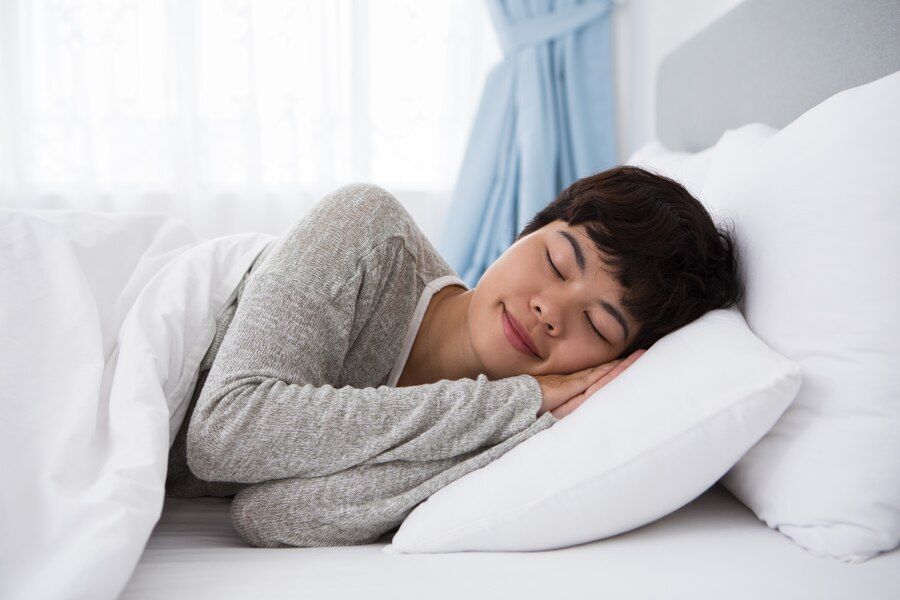Alternatives to CPAP for Better Sleep

Many people with sleep apnea find using a CPAP machine uncomfortable or inconvenient. Luckily, there are other ways to improve sleep without relying on CPAP. Dr. Fox at Pennsylvania Dental Sleep Medicine offers alternative treatments that might better suit your lifestyle.
This change in sleeping position can improve airflow significantly and reduce snoring. By exploring alternatives and making suitable lifestyle choices, you might find a better solution for sound sleep without the constraints of a CPAP machine.
Exploring Oral Appliance Therapy
Oral appliance therapy is a popular alternative for those who find using a CPAP machine uncomfortable. These devices work by keeping your airway open while you sleep. They are small, easy to wear, and often compared to nightguards or retainers. Gently shifting the lower jaw forward prevents the airway from collapsing, helping you breathe better overnight.
These appliances are handy for people with mild to moderate obstructive sleep apnea. The primary goal is to maintain unobstructed airways, which can significantly reduce snoring and interruptions in breathing. Many users find oral appliances more comfortable than other treatments, making them a desirable option for improving sleep quality.
At Pennsylvania Dental Sleep Medicine, Dr. Fox customizes each oral appliance to fit the individual's mouth. This personalized approach ensures that every device is comfortable and effective. Dr. Fox takes precise measurements and uses advanced techniques to create an appliance explicitly tailored for you. His dedication to customization means you get optimal results, enhancing your overall sleep experience.
Positional Therapy as a CPAP Alternative
Positional therapy can be another effective CPAP alternative, especially for those with positional sleep apnea. This condition occurs when breathing problems occur, primarily while sleeping on the back. By encouraging side sleeping, positional therapy aims to improve airflow and reduce symptoms.
Various methods exist to help maintain a side-sleeping position. Some people use special pillows or cushions that make it uncomfortable to sleep on their backs, while others wear devices on their backs to prevent rolling. Even simple changes, like sewing a tennis ball into the back of pajamas, can encourage staying on the side.
Positional therapy offers improved comfort and better sleep quality without bulky equipment. Unlike CPAP machines, which can be noisy and restrictive, positional therapy focuses on natural sleep positions. Many find this method more convenient and easier to adapt to in the long run. Dr. Fox can help you incorporate positional therapy effectively, ensuring you find the best solution for your sleep apnea needs.
Lifestyle Changes to Improve Sleep Quality
Making certain lifestyle changes can greatly affect sleep apnea symptoms. Simple actions like managing weight, avoiding alcohol near bedtime, and engaging in regular physical activity contribute to improving sleep quality. Carrying extra weight, especially in the neck area, can put more pressure on your airway. Regular exercise helps reduce this pressure, making breathing easier when sleeping.
The diet also plays a role in sleep apnea management. Avoiding alcohol and heavy meals before bed can prevent muscle relaxation in the throat, which contributes to airway blockage. Keeping a consistent sleep schedule, creating a relaxing pre-sleep routine, and maintaining a comfortable sleep environment can further enhance the quality of your sleep.
Dr. Fox is committed to helping individuals incorporate these lifestyle changes. He provides personalized guidance to help you create a plan that fits your life and addresses your sleep apnea needs. Considering your unique challenges, he ensures you receive the support needed to improve your sleep health effectively.
Surgical Options for Treating Sleep Apnea
When non-invasive methods are insufficient, surgical options might be considered to treat sleep apnea. Several procedures can help clear blocked airways or reduce tissue-causing obstruction. These surgeries include nasal surgery to remove blockages, uvulopalatopharyngoplasty (UPPP) to remove excess tissue from the throat, and maxillomandibular advancement (MMA) to reposition the jaw.
Each surgical option has its own set of benefits and risks. For instance, while surgery can offer a permanent solution, it may also involve recovery time and potential complications. It's crucial to weigh the benefits against these risks and consult a doctor for advice specific to your condition.
Dr. Fox can offer insights into whether surgery is appropriate for you. He evaluates your condition comprehensively and provides recommendations based on your specific needs, ensuring you make an informed decision.
Conclusion
Finding the right solution for sleep apnea starts with understanding the alternatives available. Whether exploring oral appliance therapy, trying positional or lifestyle changes, or considering surgical intervention, the goal is always to improve one's quality of life. Dr. Fox's personalized approach ensures that each individual receives treatment tailored to their specific needs, paving the path for better sleep and well-being.
If you're tired of restless nights and want to explore
alternatives to CPAP, Pennsylvania Dental Sleep Medicine is here to help. Dr. Fox and his team offer a range of treatments designed to suit your lifestyle and enhance your sleep quality. Don’t let sleep apnea interfere with your days and nights; take the first step to better sleep today by contacting Pennsylvania Dental Sleep Medicine.


